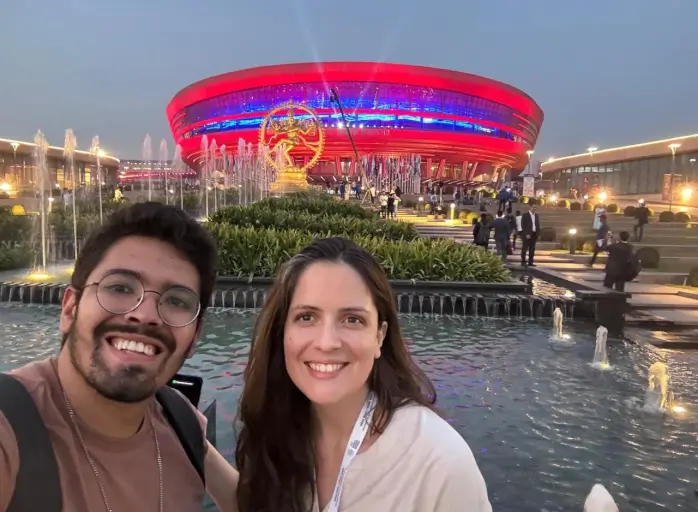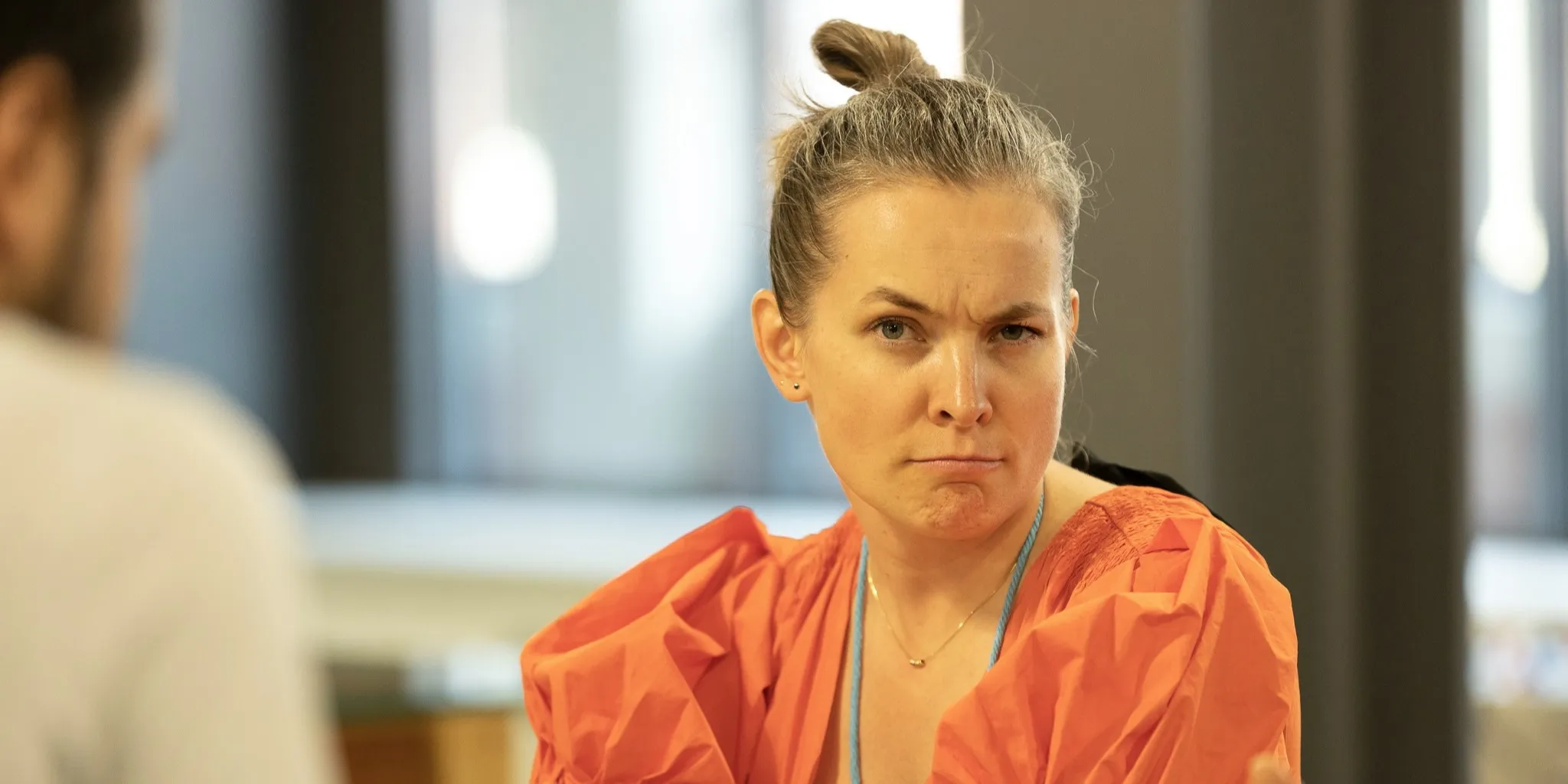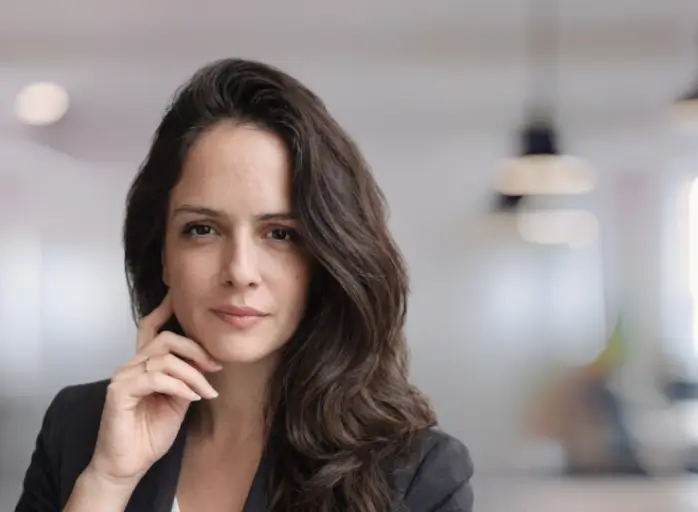

“I think that women are more harshly judged for making mistakes”
Kadri Bussov moved to Luxembourg in 2020 and join the national cybersecurity initiative: Luxembourg House of Cybersecurity.
 Startup Luxembourg
Startup Luxembourg
Kadri Bussov moved to Luxembourg in 2020 as an exchange student in the University of Luxembourg’s Space Law master’s programme. In Estonia, her mother country, she was CEO of ESTCube, a multidisciplinary technology project that brings together universities in Estonia, Latvia and Finland to develop small satellites in low earth orbit. ESTCube launched the first Estonian satellite into space in 2014. After graduation, she decided to move to another space, cyber this time, to join the national cybersecurity initiative: Luxembourg House of Cybersecurity.
Tell me about your career path and how it led you to where you are today?
“It’s been a very winding road and I think that any point in life is never the end point. The most valuable lesson that I’ve learned from my career path is that you should never limit yourself in going after things that are interesting to you, even if your previous experience or education does not support that.
My education is in law, previous experiences in advertisement and marketing, so going into the space technology field was completely different. It was deep tech, and I did feel terrified because I questioned myself about my ability to be in that field, whether I had anything to offer.
I came here about three years ago, because I did one year in the University of Luxembourg’s space law master’s programme.
The thing is that you do, you always do, and you are always more capable than you think, so if there is something you are really interested in, even though you might think that you might not fit, or you don’t have right qualifications, that shouldn’t be something that holds you back.
I came here about three years ago, because I did one year in the University of Luxembourg’s space law master’s programme. It was during covid and my master’s essay was about cyber security and space assets. I graduated and I was looking for a job here in Luxembourg and this is how I ended up in the cyber security field. Before that I had not worked in the cybersecurity field. 
Why do you think there are so few women in technology in Luxembourg? Is it similar compared to Estonia?
“I don’t think that there is a clear answer to that question. It’s a combination of several aspects: previous experience, cultural customs and so on. However, it is a little bit similar when compared with the situation in Estonia, and I do remember that when I was graduating from high school, the girls from my class didn’t usually go after diplomas like engineering or mathematics.
It is only in the last five to seven years in Estonia that technical startups were being founded by women straight out of universities.
But I do remember that it was a clearly understandable shift in mentality, and it was clearly campaigned to popularise STEM fields for girls. This kind of trend has continued in Estonia but just because more women and girls chose to study STEM fields at university, this did not immediately translate into women creating tech startups. That came even later.
So it is only in the last five to seven years in Estonia that technical startups were being founded by women straight out of universities. They go on to study IT and engineering and they graduate, and instead of trying to find a job, they launch their own companies. But it is a question of mindset and a question of encouraging and breaking certain types of glass ceilings and definitely a very strong element is “women supporting women”.
What are the barriers to entry for women to get recognised in the field of space?
“I don’t think that there are significant barriers for women entering the space sector, especially if they have an engineering and STEM background.
Why do you think women founders have a hard time finding VC funding?
“I recently read from the Oxford Business School, they were studying why only the one percent of the VC funding in the UK is allocated to female founders and they were trying to propose a solution. But their team came up with the reason that women founders are less likely to find VC funding because there is not enough female-led VC funds or female-led incubators. And the reason for it is very simple: it is easy to foresee someone being successful when he is like you. So it is much easier for men to understand why a man and a man-led team can be successful.
You have to show that you, as a founder, can be successful and bring this team successfully forward.
When a woman, female-led VC or female-led company goes to pitch, there are many more barriers and many more challenges you have to overcome. The question is how to show whether or not your business model is successful.
You have to show that you, as a founder, can be successful and bring this team successfully forward. And if you are very different from the person you are talking to, then it is a significantly harder task to do.
How can the situation be changed?
“It is a question of time. It needs time and it needs attention. Female founders have to be visible, their successes have to be visible.
What inspired you to choose your profession?
“That’s a hard question. I’m continuously inspired by new things. I’m still choosing, and I think everybody should always continue to choose, not choose one and stick to it. And the reason is that you have to follow your feeling and instinct and you have to be happy with what you do. And whether it is your instinct or not, what you do makes you happy.
I used to compete in mixed martial arts and my coach used to say ‘you either win or you learn.’ You never lose.
We tend to be afraid to fail and to make mistakes. And I think that women are more harshly judged for making mistakes which can be seen as a failure.
So, instinctively, we tend to choose paths that are safe. But this also means that we limit our opportunities. I used to compete in mixed martial arts (full-contact combat sport, editor's note) and my coach used to say ‘you either win or you learn.’ You never lose.”


